Led by the School of Design at Queensland University of Technology, the Design for Change initiative is a ground-breaking program that leverages innovation to drive meaningful changes and improve the quality of life and well-being for all beings and the environment. Established in 2014, it began as a study tour between Australian and Singaporean Universities supported by the Singapore Government and funded by the Australian Government, New Colombo Plan Scholarship program to support the creation of healthcare innovations in Singapore and Australia. It has since grown into a global movement. This initiative engages researchers, academics, governments, industry and the public to tackle complex social, economic, and environmental challenges through innovative and impactful collaborations with a program of intensive bootcamps, design sprints, exhibitions, and international symposiums. Our 2023 “Better Health for All” and 2024 “Sustainability in Healthcare” symposiums, design sprints, and study tours aligned with UN Sustainability Goals. To create universal design solutions, we have brought together over 200 design, health, engineering, business, science and IT students from eight universities and academics and experts from Australia, Malaysia, Singapore, Taiwan, Thailand, Hong Kong, UAE and UK. To date, 30+ creative solutions have been generated including universal design solutions for better access to services and support for individuals living with disabilities, innovative educational campaigns for disease prevention, multi-lingual communication platforms for better healthcare information and translation, transformational spaces to support well-being outcomes for neurodiverse populations and digital tools for better distribution of pharmaceuticals to the ageing population. We continue to push the boundaries of innovation through transdisciplinary, cross-cultural collaboration to address global challenges. By fostering a global network of collaborators at the frontiers of design and innovation, Design for Change is creating a sustainable, accessible and equitable future for all.

RUNNER-UP
Impactful Collaboration of the Year Award
Better health for all
RUNNER-UP Impactful Collaboration of the Year Award
Peoples' Choice Category Winner
Queensland University of Technology, Design Singapore Council - Australia
"Transformational cross-cultural and transdisciplinary experiences to solve global healthcare challenges"

Engage on social media
(Professor Lisa Scharoun's LinkedIn page )
(QUT Design Lab "Design for Change" 2023 YouTube Channel)
(Design for Change 2024 YouTube Channel)
(Design for Change Instagram )
Summary
Key People

Professor Lisa Scharoun
Program Lead (Chief)
School of Design,
Queensland University of Technology
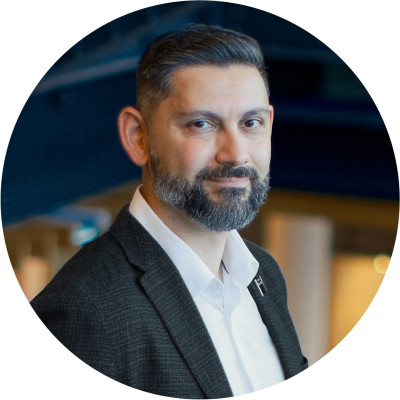
Dr. Leo Rezayan
Program Director
School of Design,
Queensland University of Technology
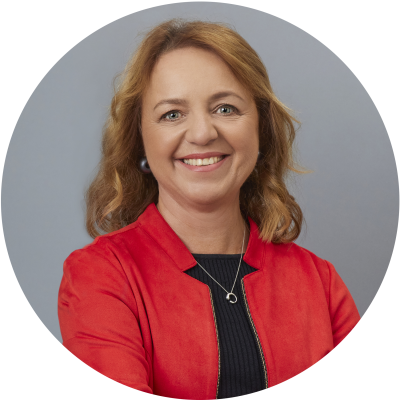
Professor Daphne Flynn
Operation Coordinator
Design Health Collab,
Monash University

Dr. Raghavendra Gudur
Operation Coordinator
Faculty of Arts and Design,
University of Canberra
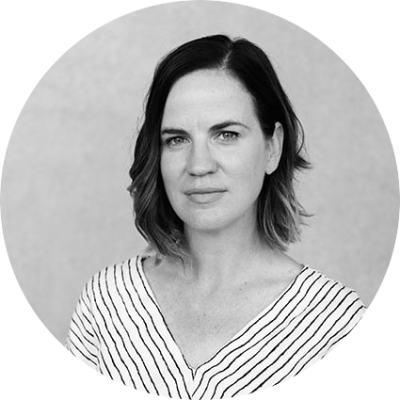
Melanie Finger
Program Manager
School of Design,
Queensland University of Technology
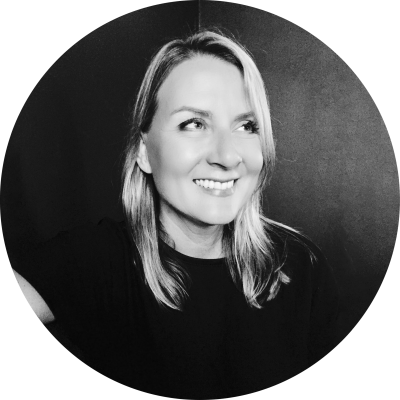
Nicola Hardcastle
Operation Coordinator
School of Design,
University of Technology Sydney
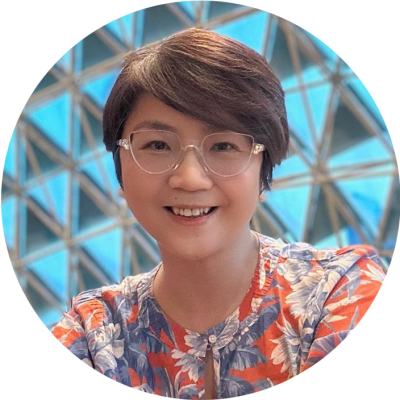
Jie Hong Liu
Regional Program Coordinator (Singapore)
School of Design and Media,
Nanyang Polytechnic
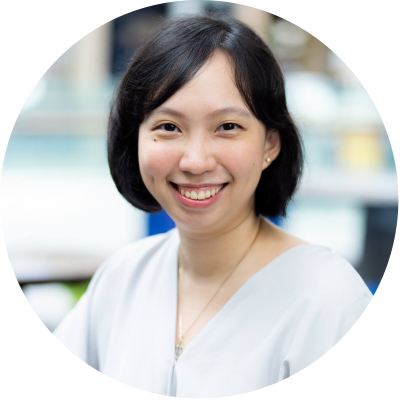
Daphne Anne Lim
Operation Coordinator (Singapore)
School of Nursing,
Nanyang Polytechnic
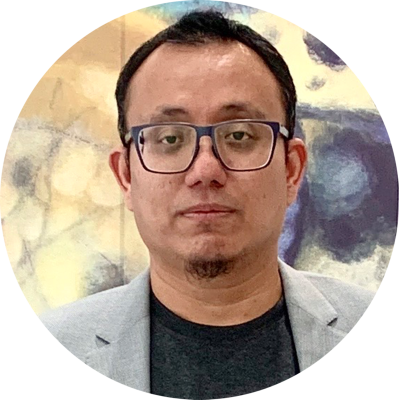
Khairul Yusri Bin Zamri
Regional Program Coordinator (Malaysia)
Faculty of Innovation and Technology,
Taylor's University
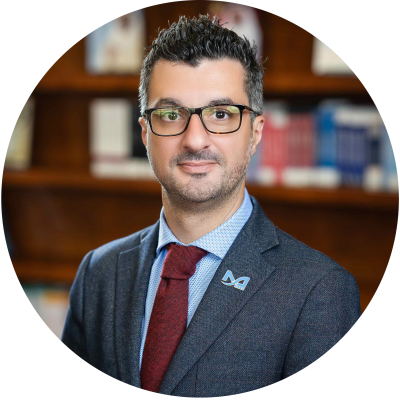
Dr. Yacine Hadjiat
Regional Program Coordinator (UAE)
Dubai Health

Professor Danny Hills
Operation Coordinator (Industry)
APNA (Australian Primary Health Care Nurses Association)

Tamsin Greulich-Smith
Operation Coordinator (Singapore Government)
School of X,
Design Singapore Council
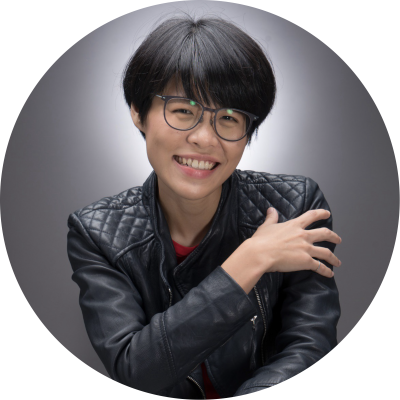
Assistant Professor Kai-Chieh (Maggie) Lin
Operation Coordinator (Taiwan)
International and Cross-strait Affairs,
Tatung University
Acknowledgements
Australian Government, Department of Foreign Affairs and Trade (New Colombo Plan)
APNA (Australian Primary Health Care Nurses Association)
Design Singapore Council, School of X
National Design Centre, Singapore
National Council of Social Service Innovation Lab, Singapore
Ministry of Health, Office of Healthcare Innovation, Singapore
SG Enable (Enabling Village), Singapore
Language Disorder Australia
National Cancer Institute, Malaysia
National Cancer Centre, Singapore
Tan Tock Seng (TTS) Hospital, Singapore
Centre for Healthcare Innovation, Singapore
NTUC Health, Singapore
St. Johns Ambulance, Singapore
Dell, Singapore
Phillips, Singapore
Sultanah Aminah Hospital, Malaysia
National Innovation Agency (Innovation Foresight Institute), Thailand
Universal Design and Accessibly Consultants (UDA), Hong Kong
Burdus Access (Disability and Inclusion Consultancy), UK
Platypus Print Packaging, Australia
Design Hopes, Scotland, UK
NHS Scotland, UK
Dubai Health, UAE
Yayasan Warisan Culture Centre, Malaysia
National Parks, Singapore
Pertububan Kebajikkan Sulaman Kaseh, Malaysia
Terra Village, Singapore
Mater Health, Australia
UNSW Nura Gilli Centre for Indigenous Programs, Australia
Dubai Institute of Design and Innovation (DIDI), UAE
American University of Sharjah, UAE
University of Strathclyde, UK
Chulalongkorn University, Thailand
KK Women’s & Children’s Hospital, Singapore
Images
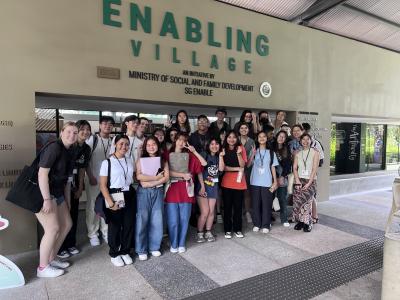
Students and staff visit the Enabling Village in Singapore during the 2023 Design for Change "Better Health for All" Study Tour
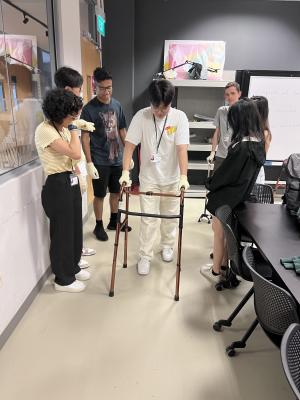
Students 'step in the shoes of the user' during empathy exercise during the 2023 Design for Change "Better Health for All" study tour
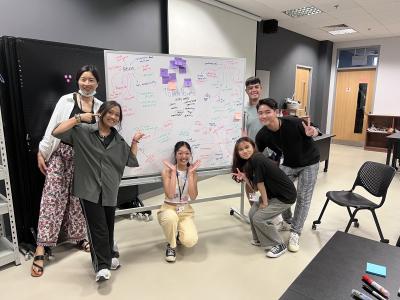
Students work together in cross-cultural and multi-disciplinary teams to create solutions for the Enabling Village in Singapore
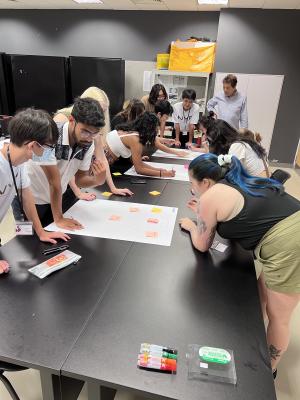
Students map a user journey during the 2023 Design for Change "Better Health for All" study tour
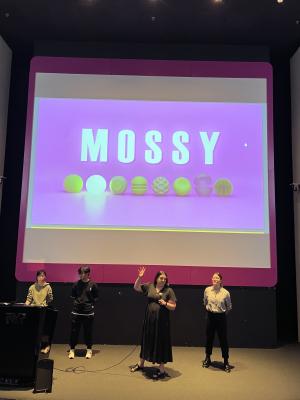
Pitching concepts to an industry panel during the 2023 Design for Change "Better Health for All" Study Tour
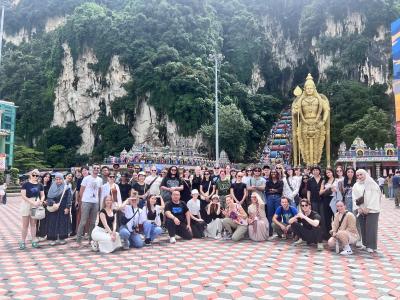
Students from five countries visit the Batu Caves during the 2024 Design for Change "Sustainability in Healthcare" Study Tour

Students tour the National Cancer Centre in Malaysia during the 2024 Design for Change "Sustainability in Healthcare" study tour
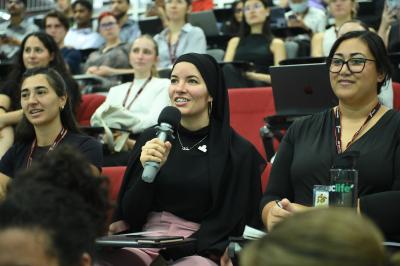
MBRU, Medical Science Student Karen Blanco asks questions during the 2024 Design for Change Symposium at Taylor's University in Malaysia
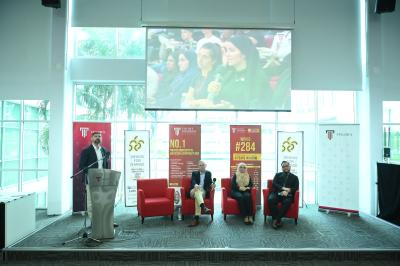
Students ask questions during the live feed Q&A Session at the 2024 Design for Change Symposium at Taylor's University, Malaysia
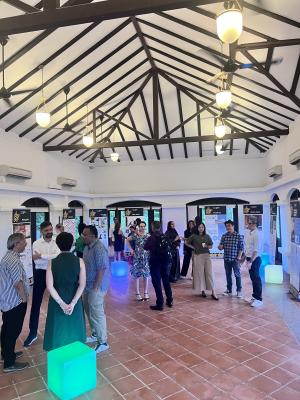
Final exhibition of student work for the 2024 Design for Change "Sustainability in Healthcare" study tour at Raffles House in Singapore
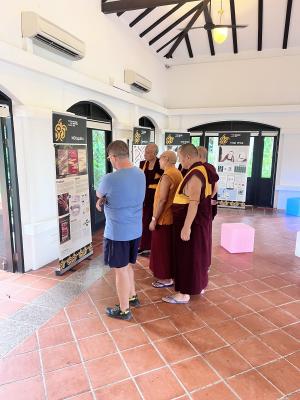
2024 Design for Change "Sustainability in Healthcare" student exhibition at Raffles House in Singapore draws visitors from far and wide
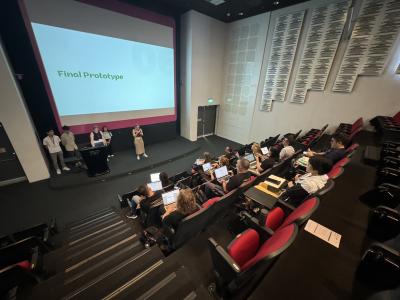
After a 5 day design sprint - students pitch their concepts to an academic and industry panel during the 2024 Design for Change "Sustainability in Healthcare" Study Tour
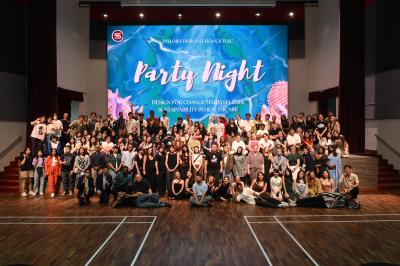
At a party night hosted by the Taylor's University Student Union - multicultural and multidisciplinary student groups make friends across borders and disciplines at the 2024 Design for Change study tour

The 2024 Design for Change "Sustainability in Healthcare" symposium at Taylor's University in Malaysia prepared students for a design sprint in Singapore through talks by global experts from 8 countries - outlining challenges and opportunities
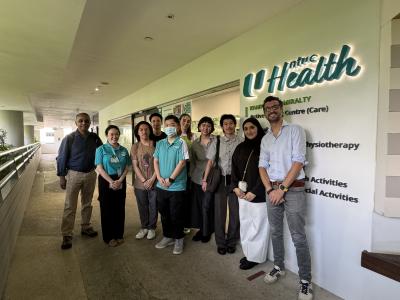
Speaking with staff and residents at NTUC Health in Singapore provide students with an understanding of challenges and opportunities in aged care during the 2024 Design for Change tour
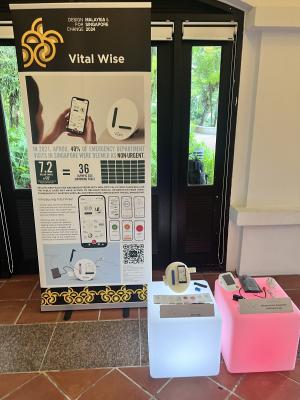
"Vital Wise" Design solution and prototype from the 2024 Design for Change exhibition
IMPACT STORY
Impacting lifes
QUT Design graduate Oliva Caufield was a participant on the 2023 Design for Change tour. Post-tour, she is on a startup journey with a digital business solution to support better health outcomes for young women suffering from chronic conditions. As her testimonial below explains, the tour has indelibly shaped her career path.
“When I embarked on the Better Health for All Study Tour, I had no idea it would profoundly transform my career and entrepreneurial journey. This program did more than broaden my horizons—it fundamentally reshaped how I approach healthcare innovation. In Singapore, I witnessed first-hand the power of co-design in healthcare. Eye-opening discussions with allied health experts and presenting findings to real clients boosted my confidence. This experience helped me understand the importance of diverse cultural perspectives in healthcare delivery and the power of interdisciplinary collaboration. Without exposure to culturally diverse viewpoints, I would have missed understanding how distinct healthcare delivery approaches impact the sustainability and viability of solutions.
This tour has laid a foundation for identifying pressing problems and designing sustainable business solutions, significantly strengthening my entrepreneurial journey. Post-tour, I met with over 50 researchers and founders in the women’s health space, from Finland to USA, uncovering healthcare gaps and potential for innovations across multiple countries. Ultimately, the program inspired me and my peers to envision a future where human-centered design drives healthcare innovation. It created a fertile environment for budding health innovators, sparking conversations that will undoubtedly lead to positive changes in our global healthcare systems."
LEARNINGS
Lessons learned
Healthcare innovations with universal appeal that solve global problems are created by teams who can navigate diverse cultures. The three key learnings below highlight the most important aspects of fostering a global perspective.
Learning 1: Building Confidence and Cultural Awareness
In our increasingly globalised world, cultural intelligence is becoming essential for students across all disciplines. Learning experiences in unfamiliar contexts challenge students’ assumptions and foster an innovative approach. Students facing real-world problems in diverse cultural settings are pushed to transcend boundaries and create impactful solutions. Adapting approaches to fit various cultural contexts further challenges mindsets and fosters true innovation.
Learning 2: Transdisciplinary Approach to Innovation
A transdisciplinary approach extends beyond blending disciplines; it challenges students with social issues that transcend cultures, encouraging individuals from diverse cultural and disciplinary backgrounds to work collectively. Transdisciplinary programs that provide environments for developing working relationships and overcoming cultural misunderstandings or taboos nurture positive cross-cultural relationships. This approach enhances problem-solving skills and builds a more cohesive and inclusive global community.
Learning 3: Global Collaboration
Collaboration is at the heart of all transdisciplinary learning experiences. While teamwork can be fostered in various teaching contexts, study tours that combine design and health programs can significantly enhance cultural awareness and career capabilities. By challenging students with diverse groupings and tight deadlines to solve global challenges, we rapidly develop their skill sets and foster lifelong bonds. Although these activities carry risks, the rewards for students far outweigh them, preparing them for successful and impactful careers in a global context.
FUTURE PLANS
What's coming?
1. New Programs:
We plan to host new events including International Conferences in collaboration with National Innovation Agency (Thailand), Mater Health, Dubai Health and QUT School of Design in Brisbane, Bangkok and Dubai. They will feature design sprints/bootcamps thus fostering a further generation of ideas situated in the Australian, Thai and UAE healthcare contexts.
2. Digital Hub:
We launched a digital platform for researchers, academics, governments, and the public. This hub facilitates knowledge sharing, promotes collaboration, and provides comprehensive resources on design-driven solutions to complex global challenges. The hub features ongoing exhibitions of student work, promotes workshops and awards that showcase our students’ innovative design solutions, stories, and the global impact of their experiences. This will raise awareness about the importance of collaboration, cultural exchange and interdisciplinary teamwork to address UN Sustainability goals.
3. Concept Incubator:
We will create a multi-institutional incubator to support the realisation of the concepts created on the tours. The incubator will provide mentoring as well as specialised tools needed for students to grow and innovate their ideas from concept stage to startup phase.
4. Widening Participation:
We have secured funding for 2025 to continue to bring together students, professionals and academics from 13 universities to create innovative solutions to address UN Sustainability Goals. In 2025, we will apply for 150 Australian government scholarships to bring even more diverse cohorts together in 2026/27. Our 2025 application will widen our partnerships to include the UNSW Nura Gilli Centre for Indigenous Programs to engage Indigenous students in the program.

